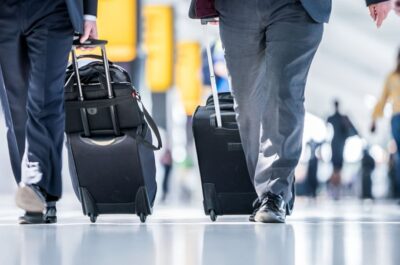"Spot the Risk", an interractive online game by Intrenational SOS, helps travelers hone their medical and security knowledge.
TREVOSE – International SOS, the world’s leading medical and security services company, is offering travelers around the world the chance to test their health and travel security knowledge against 10 questions in ‘Spot the Risk,’ an online interactive game.
The game, which runs until Feb, 28, 2103, promotes health and travel security awareness, especially useful during this holiday season as millions of travelers take to the roads, rails and skies. Predominantly a client focused initiative, International SOS opened up this campaign to spread the responsible message that prevention and education are paramount when traveling and staying safe.
Before you hit the road, test your travel savvy, prepare with ‘Spot the Risk,’ and be sure to keep these additional tips in mind:
Be prepared
It cannot be overstated how important advance planning is before setting out from home. People typically spend more time researching restaurants or activities than investigating medical and security threats. Know your schedule, have access to good maps, learn a few phrases in the local language and research any issues in advance. Also, be sure to follow the news for the area in where you are traveling—it’s a good way to stay on top of local issues that may crop up.
Communication is key
Can you make international calls from your mobile phone? Will your charger work where you’re going? Do you know how to contact your global travel assistance provider? These are critical points to address before leaving home. Check to be sure you can make international calls, get a charger that will work and preprogram essential contact information so you’re not scrambling to find the right number or email address during a tricky situation. Finally, make sure your friends and family know where you’re going and how to reach you once you arrive. It’s also a good idea to leave copies of travel documents – like your passport and itinerary – with friends or family, and securely store copies electronically and e-mail them to you for easy retrieval.
Take care of yourself
An unexpected stay in the hospital can ruin a long-planned trip and navigating an unfamiliar healthcare system can be scary. Before you leave, make sure you know how your personal health could be affected by your destination. For example, travelers to high-risk countries are six times more likely to be hospitalized than in less risky destinations, according to research in the September issue of the Journal of Occupational and Environmental Medicine. Therefore, it’s good to ask questions like, “Is the water safe to drink?” If it’s not, drink bottled or sparkling water. Be sure to bring more prescription drugs than you’d normally need and always place it in your carry-on and in its original container. Eat as healthy as you can and remember that flying can dehydrate you—so always drink plenty of water. Finally, consider that infections are easily spread in much of the world and new strains constantly surface (as evidenced by last month’s discovery of a new SARS-like virus). Wash your hands frequently and practice safe personal hygiene.
Be aware of potential trouble spots
This starts before you even leave home. Demonstrations that have flared in many countries recently may look like history in the making, but these should be avoided. Foreigners can be easy targets, so research common scams in the locations where you will visit. Investigate the routes you will take from airport or train station to the hotel. Remember, security is ultimately your responsibility.
Safety on the Road
The threat of terrorism and natural disasters is far exceeded by traffic accidents—in which 25,000 international travelers are killed each year. In fact, vehicle crashes are the number one hazard for travelers and the main reason International SOS receives calls for evacuation. In many parts of the world, driving is chaotic, streets are crowded and roads under maintained. Unless you are extremely familiar with local road conditions, do not drive on your own. Look for a trusted driver, always wear your seatbelt and speak up if you feel unsafe. According to the CDC, injuries cause 10 times more tourist deaths each year than diseases.
Are you covered? Does your medical insurance provider in the U.S. cover your medical expenses in a foreign country? Typically, consumers are told to pay the bills, save their receipts and they’ll probably get reimbursed. However, in many countries outside the U.S., payment is expected up-front before treatment and often only local currency is accepted. Savvy travelers enroll with a medical and security assistance provider that can tell them where to find quality medical care, whether for routine advice or in an emergency, guarantee payment for medical expenses and, if necessary, a medical evacuation.
Tatiana is the news coordinator for TravelDailyNews Media Network (traveldailynews.gr, traveldailynews.com and traveldailynews.asia). Her role includes monitoring the hundreds of news sources of TravelDailyNews Media Network and skimming the most important according to our strategy.
She holds a Bachelor's degree in Communication & Mass Media from Panteion University of Political & Social Studies of Athens and she has been editor and editor-in-chief in various economic magazines and newspapers.










































































































































































































